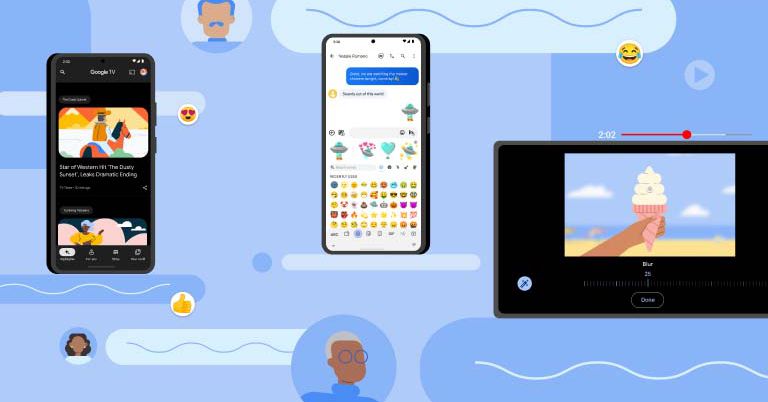Google’s new prototype AI tool does the writing for you
Google’s Douglas Eck introducing Wordcraft, an AI-powered creative writing tool, at Google AI@. | Photo by Victoria Song / The VergeRemember that time Google showed off its artificial intelligence prowess by demoing conversations with Pluto and a paper airplane?...
/cdn.vox-cdn.com/uploads/chorus_asset/file/24162041/IMG_0296.JPG)
Remember that time Google showed off its artificial intelligence prowess by demoing conversations with Pluto and a paper airplane? That was powered by LaMDA, one of Google’s latest-generation conversational AI models. Now, Google’s using LaMDA to build Wordcraft, a prototype writing tool that can help creative writers craft new stories.
AI-powered writing tools aren’t new. Chances are you’ve heard of Grammarly or copywriting tools like Jasper. What makes Wordcraft a bit different is that it’s framed as a means to help create fictional work. Google describes it as a sort of “text editor with purpose” built into a web-based word processor. Users can prompt Wordcraft to rewrite phrases or direct it to make a sentence funnier. It can also describe objects if asked or generate prompts. In a nutshell, it’s sort of like wrapping an editor and writing partner into a single AI tool.
Image: Google
To test Wordcraft, Google created a workshop with 13 professional writers to see how well the prototype worked. While the writers seemed to appreciate Wordcraft as a way to spark new ideas, they unanimously agreed the tool wasn’t going to replace authors anytime soon. For starters, the tool wasn’t great at sticking to a narrative style and produced average or cliched writing. It also stuck to tried-and-true tropes while also steering clear of “mean” characters.
“One clear finding was that using LaMDA to write full stories is a dead end. It’s a much more effective tool when it’s used to add spice,” Douglas Eck, senior research director at Google Research, said at the AI@ event.
Obviously, any prototype has kinks to work out. It’s also hard to fully grasp what using an AI-powered creative writing tool is like. So I was curious to see a demo of it firsthand at Google’s AI@ event.
I started by giving Wordcraft the prompt “penguins swimming.” It then generated a few different story ideas, and because I love baby animals, I went with a mother penguin sitting on her eggs. From there, I could tell Wordcraft to either continue the story, add another prompt, or talk to a chatbot for more ideas. I opted to highlight the “eggs” and have Wordcraft offer more description.
The results were all sorts of surreal — one described the eggs as having a leathery texture, but I went with the option where they were the size of grapefruits and covered in downy feathers. (Never mind the fact that eggs covered in feathers aren’t really a thing.) I won’t go into every prompt I tried out, but I did at one point have Wordcraft shorten a lengthy continuation into a single sentence, as well as had the chatbot generate some conflict (hence, the seal eating mama penguin’s babies).
Photo by Victoria Song / The Verge
As you can see from the final product, the writing is fairly basic. There are also a lot of things that contradict — the baby eggs are eaten, but then a baby is floating in the ocean and rescued? Despite the fact that they never actually hatched? Sure! Another quirk was I had to manually copy and paste whatever the chatbot suggested into the main window. Every other prompt can just be clicked and automatically added.
Ultimately, it’s as Eck said. After the demo, I couldn’t really picture writing a full story this way, but it was a neat way to generate ideas. The final product wouldn’t ever work on its own — I’d be too embarrassed to even put it on AO3 as a March of the Penguins fanfic. But I could take the overall idea — a mama penguin fighting off a seal to save her eggs — and rewrite the text into a more enjoyable, less robotic story.
Wordcraft is clearly still in the experimental stage. That said, the prototype was fun to use, even if I was mostly trying to see how absurd I could get with a single prompt. If you’re curious, you can check out nine stories that came out of the Wordcraft Writers’ Workshop here. They’re pretty wild.

 Kass
Kass 
































